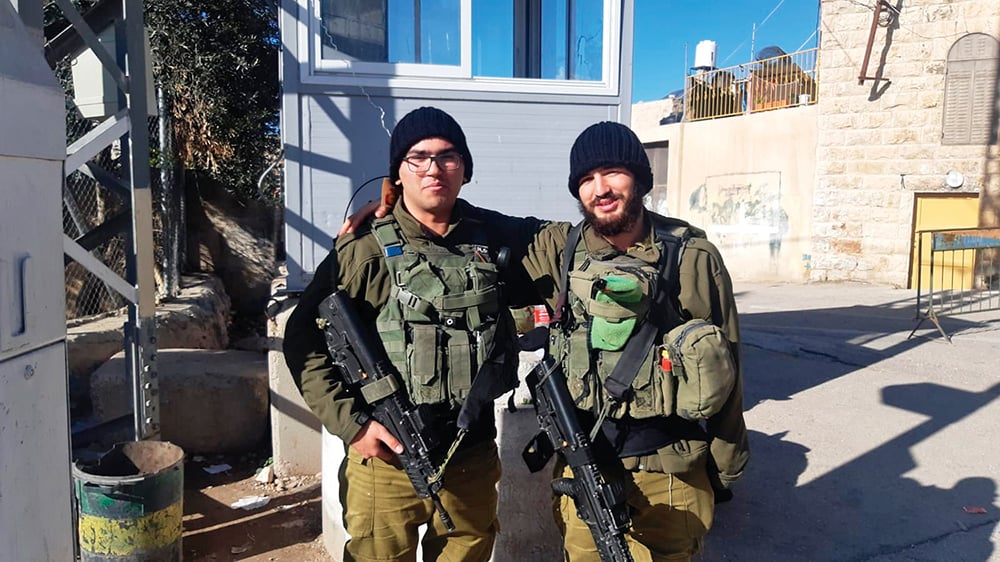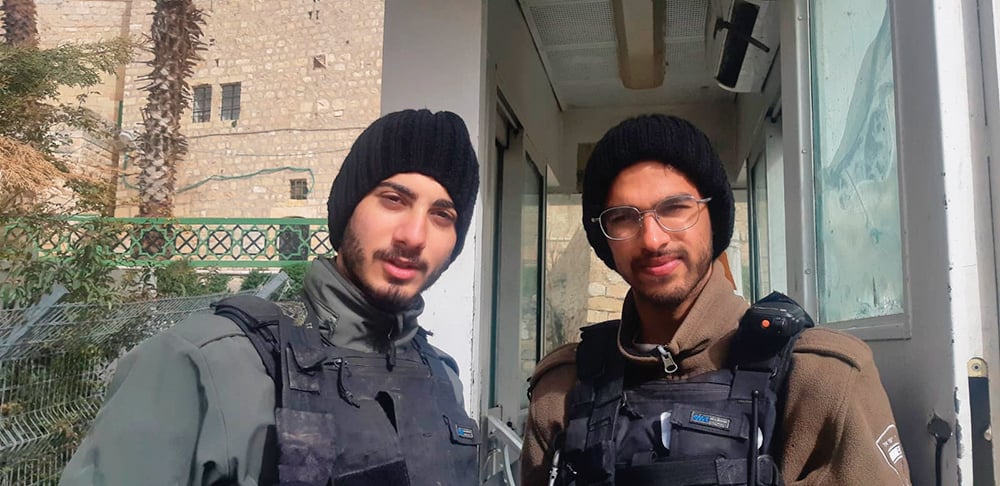
Every Wednesday night at Cong. Rinat Yisrael in Teaneck, Mindy McDonald hosts a knitting night where women gather to share tips, socialize and discuss all things knitting-related. What started as a simple community crafting night has evolved into a powerful grassroots effort supporting the IDF. Following the events of Oct. 7, the group shifted some of their focus to provide an essential item: hats for soldiers braving the cold.
Originally, McDonald’s vision for the group was to create a “community around crafting that was friendly and low-key.” Reflecting on the impact of the pandemic, she noted, “We lost a lot from COVID. There is less chatting at shul during Shabbos; we daven, go home and have lunch. There isn’t much community time on Shabbos. There are a lot of events in Teaneck, but for my personality type, I prefer more of an ongoing, non-event.”
Devora Krischer, one of the younger members of the group, added, “You can’t build a community by yourself, but you can be ready to build a community and connections through a common interest or hobby. Knitting is something you can bond over and it is multigenerational. It allows us to connect to the people around us.”
The group welcomes people of all experience levels. Ellen Krischer, a regular participant, said, “I wasn’t much of a knitter before I came, but then I met Mindy. With her incredible patience, she taught me many things and encouraged me to just go for it. Knit what you love first and then continue with the next project.”
The Hats for Soldiers initiative was brought to Teaneck after Oct. 7 when McDonald was approached by Julie Handelman, a member of Rinat. Handelman introduced her to the Hats for Soldiers project, which originally started 17 years ago by Channah Koppel, the mother of an Israeli soldier. According to Koppel’s blog, over the course of 15 years, she estimated that 75,000 hats had been made for the IDF before stepping back in 2022. This effort has been revitalized by the Michael Levin Base for Lone Soldiers and the Gourmet Yarn Shop, which now oversee the collection and distribution of hats to soldiers across Israel.

McDonald immediately took up the challenge. She began knitting hats and spreading the word to her group and extended circle of friends. Since these hats are going to the army, they must adhere to strict guidelines, which McDonald provides on a printout with detailed instructions. The hats must be made entirely of black yarn, follow specific size dimensions to fit under helmets, and use only machine washable yarn which includes wool, acrylic or a blend of the two. The hats must also follow specific stitching patterns to comply with army regulations.
“What has amazed me is just the number of people who call and say, ‘I have hats; can you get them to Israel?’” McDonald remarked, emphasizing the community’s enthusiasm. Hats for Soldiers is not an official organization but rather a grassroots effort spread largely through word of mouth. Despite that, Hats for Soldiers has spread quickly across the United States and many knitting groups and individuals have all picked up their needles to make hats from Westchester, to Portland, Oregon.
The hats have all made their way to the soldiers by people who are traveling to Israel and are willing to put a few in their luggage. Nomi Charnov, another member of the group, said, “Anytime I found somebody going to Israel, whether it was one of my grandchildren, a neighbor or the rabbi’s wife, I would say, ‘Here, I have a couple of hats—take some.’”
McDonald added, “We do not know the actual volume of hats since there are so many individual people who make five or six hats for their neighbor’s son’s unit.” She is amazed at how far- reaching this effort has become.
What started as a hobby for many turned into a great chesed opportunity. McDonald’s face lit up as she recalled a video she received from a group of Israeli soldiers thanking her for the hats. One of the soldiers said, “Mindy and all your friends, thank you so much for working so hard to make us these warm caps. It is freezing out here. It is winter and it makes a big difference to keep us warm. Thank you so much from our soldiers at Alon Shvut.”
For those interested in joining the effort, McDonald encourages anyone, regardless of skill level, to participate. But learning how to make a hat takes time. While laughing McDonald said, “You have to be willing to just be bad for a while. It’s like anything you learn. You don’t become a chef just by picking up a pot, pan and knife. It takes time.” She recommended starting with something more basic like a scarf but with enough determination and practice anyone can “knit a hat within a week.”
Those interested in learning how to knit or make hats for soldiers, email McDonald at knitting@rinat.org or come to Rinat any Wednesday at 7:30 p.m.
Rachel has a diverse background in media, spanning podcasts, feature films, article and script writing as well as advertising and marketing campaigns. She is currently producing a TV pilot set in New York City.







